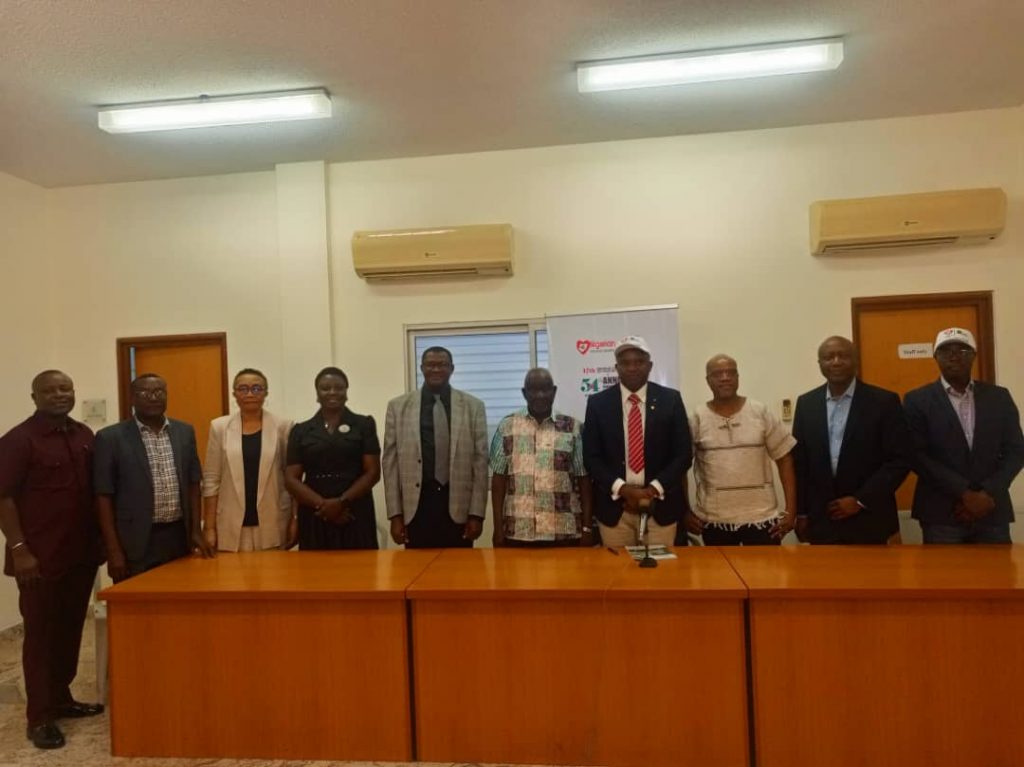Lara Adejoro
Cardiologists on Monday warned that Nigeria and Africa are facing a growing epidemic of cardiovascular diseases, with new data showing that about four in ten Nigerian adults are hypertensive.
They stressed that Africa has the fastest-rising rate of cardiovascular diseases in the world, citing lifestyle changes, rising obesity, poor exercise habits, and weak public health systems as factors fuelling the crisis.
The warning comes ahead of the Nigerian Cardiac Society’s 54th annual general meeting and scientific conference, in Abuja, in partnership with the Pan-African Society of Cardiology.
The five-day event, themed “Cost-effective interventions to mitigate the burden of cardiovascular diseases in Africa,” runs from September 15–19 and brings together experts from across Nigeria, Africa, and the diaspora to address the growing crisis.
According to the World Health Organisation, CVDs are the number one cause of death globally, as more people die annually from CVDs than from any other cause. An estimated 17.7 million people died from CVDs in 2015, representing 31 per cent of all global deaths, and over three-quarters of CVD deaths take place in low- and middle-income countries.
Speaking, the President of NCS, Prof. Augustine Odili, who described cardiovascular diseases in Nigeria as alarming, stressed that urgent action is needed to prevent the growing burden.
“Seven years ago, we had a grant to look at the number of Nigerians who are hypertensive. We moved around the six geopolitical zones, and we measured their blood pressure, both at home and in the clinics. We found out that almost four out of every ten adult Nigerians are hypertensive, and this is alarming.
“Many years back, a colleague had a publication where he reviewed the trend of hypertension in this country. At that time, hypertension was about two to three per cent. Then, it came to 11 per cent.
“Hypertension is a key driver of many cardiovascular diseases. With the rising incidence of hypertension comes the rising incidence of heart failure, stroke, kidney disease, and others. So the situation is quite bad.
“Lifestyle changes are some of the factors responsible for it; people are not exercising as much as they should, and the public health system is also not very good at addressing some of these challenges,” he said.
Also, the President of PASCAR, Prof. Elijah Ogola, noted that Africa has the fastest-rising rate of cardiovascular diseases in the world.
“But one thing that is not contestable is that the rate of rise of cardiovascular diseases in Africa is the highest in the world. I’ll give an example of the statistics from Kenya.
“If you look at hospital admissions in public hospitals, more than 50 per cent of all admissions are for cardiovascular diseases. We also have a persistence of unique cardiovascular problems, which are only seen in the low- and middle-income countries predominantly.
“We are having all these problems when we have not eliminated what are historically perceived to be our health problems, which are communicable diseases,” Ogola stated.
A Professor of Medicine at Bayero University and Consultant Cardiologist at Aminu Kano Teaching Hospital, Kano, Kamilu Karaye, also explained that there is a serious heart condition affecting young women after childbirth, known as peripartum cardiomyopathy.
He said the disease causes the heart to become weak and enlarged, reducing its ability to pump blood effectively.
“In the northwestern part of Nigeria, many women develop this condition after delivery, and it has become a significant health concern,” he noted.
Karaye noted that prolonged or closely spaced pregnancies, coupled with low socioeconomic status and resulting poor nutrition, increase women’s vulnerability and worsen outcomes of the condition.
“Unfortunately, awareness of peripartum cardiomyopathy is still very low, and many women continue to suffer needlessly,” he noted.
Meanwhile, the organisers are carrying out a series of pre-conference workshops, including training young cardiologists on research and manuscript writing, interventional cardiology, and conducting open-heart surgeries.
One of the highlights is a Basic Life Support instructor programme, designed to equip health workers and other citizens with lifesaving cardiopulmonary resuscitation skills.
“We are calling on all Abuja residents to come forward for free CPR training at the Yar’Adua Centre. You don’t need to be a doctor or a nurse. Anyone can save a life when sudden cardiac arrest happens; instead of standing by to take pictures, we want Nigerians to act.
“If we prevent diabetes and hypertension, we reduce the need for expensive interventions,” Odili added.
Copyright PUNCH
All rights reserved. This material, and other digital content on this website, may not be reproduced, published, broadcast, rewritten, or redistributed in whole or in part without prior express written permission from PUNCH.

